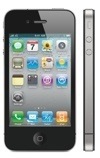The suit, filed in federal court in Northern California, seeks both monetary damages and a court order to stop the profiling. It’s similar to another lawsuit (http://macte.ch/yTIvy) filed Dec. 23 in federal court in San Jose, California, on behalf of Jonathan Lalo of Los Angeles County, and seeks class-action status. Both lawsuits claim iPhones and iPads are encoded with identifying devices that allow advertising networks to track what applications users download, how frequently they’re used and for how long. The transmission of such data violates computer-fraud and privacy laws.
The tracking is possible because Apple assigns a UDID (Unique Device Identifier) to each iPhone, iPod touch and iPad, and apps can access that number. Advertising companies figured out this number can be used for tracking, much like a cookie in a browser, says “Wired.”
If an app passes that number along to an advertiser, the advertising company can use it to build up a profile of the user, as well as keep track of which ads it has shown to a user before and which of those ads the user clicked on. “Wired” notes that, unlike browser cookies that you can block or delete, you can’t do this with apps that use the UDID, because the ID number can’t be changed.
“Apple knew this was an issue,” said Majed Nachawati, one of the lawyers who filed the latest lawsuit. “They had a duty to warn consumers and at a minimum, if they intend to profit from this, they need to let people know and get their consent.”




